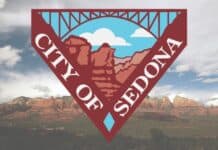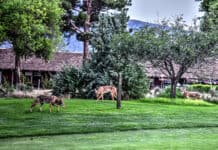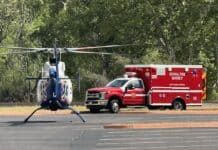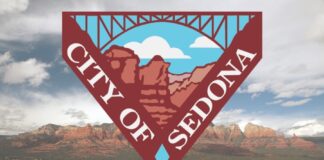
For nearly 60 years, questions and conspiracy theories have swirled around the assassination of President John F. Kennedy in 1963.
While Bob Beech isn’t sure about the why or how of the shooting, he does have some insight on who was accused of pulling the trigger.
Sunday, Nov. 22, marks the 57th anniversary of Kennedy’s assassination. This time of year Beech’s thoughts go back to his service in the United States Marine Corps, where in the late 1950s he was in the same squadron and slept directly across from Lee Harvey Oswald.
Prior to that, the Pittsburgh native joined the service on somewhat of a whim in 1955.
“Honestly, there was a big movie out called ‘Battle Cry’ and it had everybody wanting to be a Marine,” the three-year resident of the Village of Oak Creek said. “We were young and stupid. I had two scholarships to college that I turned down to join the Marines. It definitely upset my family.”
Beech first encountered Oswald while the two were stationed at Naval Air Facility Atsugi in Japan. Both were assigned to Marine Air Control Squadron 1.
“He was in our outfit but I never really met him personally,” he said. “I knew who he was but he was just odd. He had no social friends — no buddies to speak of that he hung out with. He was a loner.
“The first real interaction with him, or when I first noticed him, was when he shot himself. I was a sergeant and I went across to him and asked, ‘What the [expletive] did you do, Oswald?’ His response is something I will never forget as long as I live. He said, ‘I do believe I shot myself.’ Who the hell talks like that?”
Beech said Oswald shot himself in the calf with a .22 caliber pistol, one he’s guessing was purchased in Japan.
“I believe it was a deliberate act and a get-out-of-the-Marine-Corps-free shot,” he said, referring to the placement of the wound and Oswald’s reaction afterward.
Some reports over the years say that Oswald shot himself in the elbow. Beech disputes that.
“No. I was right there,” he said. “That was the last time I saw him [in the barracks]. They took him away. We’d go to chow and we’d see the MPs bring him in. He was not allowed to associate with anyone — he was under lock and key. The thing is, none of us really paid much attention to him. He wasn’t important to us. At the time he was just a guy who shot himself to get out of the Marine Corps.”
In all, Beech estimates that he lived in the same barracks with Oswald for seven or eight months, both in Japan and the Philippines. He said that lack of social interaction was not unusual being that an entire company was housed in the barracks. And because of that, Beech didn’t know a lot of the men he served with.
“There were a lot of people you knew and a lot of people you didn’t,” he said. “Like anything, you had your cliques of guys you hung out with.”
Beech got out of the Marines after serving four years, and while he can’t remember exactly what he was doing when he heard Kennedy had been shot on Nov. 22, 1963, he vividly remembers when Oswald appeared on his television screen the following day.

“I looked up and said, ‘My God, it’s Lee Harvey Oswald!” he said of the man he hadn’t seen in at least four years. “I recognized him right away. He was kind of an odd-looking guy.”
A few months later Beech was playing cards with his father in Pennsylvania and expressed his displeasure with the information that was being spread in terms of Oswald being in military intelligence while in the Marines and that he was a superb marksman. In terms of the latter, Beech said every Marine had to qualify with an M1 rifle.
“But that doesn’t mean they’re a sniper and can go up in the second floor and shoot someone while having an iron resolve,” he said. “Ninety-nine percent of the Marines couldn’t do that. It’s not that hard to be considered a marksman. To be a sharpshooter, that’s a couple points higher and expert is above that. None of them — marksman, sharpshooter and expert — are sniper-capable. You have to go to a special school to be a Marine sniper. Like anything else, there was advanced training and Oswald had none of that.”
Being that he was young and was working parttime jobs to make ends meet, Beech thought he’d call publications such as “Adventure Magazine” to see if they’d be interested in buying his story about Oswald. He and his dad decided that he’d first call the FBI to get some advice on going public with his memory of Oswald. He called the FBI office in Pittsburgh, gave his name, and was told the FBI does not “give advice.”

“The next morning I go to work and these two FBI guys come in, picked me up and took me to our conference room,” he said. “Keep in mind, I called them. They knew everything about me. They tried to trip me up with questions and even asked me where I was the day Kennedy was shot. I was a nervous wreck. I was in with them for about two hours.”
He told the agents the reason why he called their office. They asked him if he thought Oswald was an excellent shot, to which Beech said, “No.” They asked him if he thought he assassinated Kennedy on his own, and he again answered, “No.”
“They asked me why I thought that way,” he said. “I told them that you had to know the guy. It takes a certain amount of intestinal fortitude to be calm enough to plan this [assassination]. And then with a bolt-action rifle? Give em a break. I said I don’t know who did but I didn’t think he did it.”
As for selling his story to a magazine, he said the FBI agent’s response was one of the reasons why he’s waited so many years to talk publicly about his time with Oswald.
“He told me, ‘Everybody who has gone public, up until now, has been murdered or is dead,’” Beech said. “I looked at them and knew they were telling me don’t take a chance on anything because there are nuts out there. Truthfully, for about a month after that, I was always looking in my rearview mirror. I was scared.”
As for whether or not he feels Oswald killed Kennedy, Beech said he believes Oswald played a part but feels there may have been others involved and Oswald was used as a “scapegoat.” Two days after Oswald was arrested for killing both Kennedy and Dallas police officer J.D. Tippit, Oswald was shot and killed by Jack Ruby while being transported from the Dallas Police Department to the county jail.
“They caught him, then they killed him, and in my opinion, it put the country at ease because the guy who killed the president was killed,” he said. “An eye for an eye.”





















